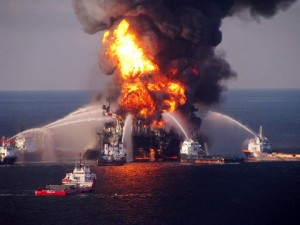 Emergency Response Planning is the process to define the activities that must be taken to prevent, prepare for, respond to and recover from a possible hazard. The resulting emergency response plan documents the actions that organizations implement immediately after an incident has occurred. These tend to be more tactical in nature and focus on protecting and preserving human life, containing the emergency in coordination with responding entities (e.g., fire and police), safeguarding the environment in the case of hazardous substance operations and minimizing damages to corporate property. CMCG establishes integrated programs that link emergency response, with broader crisis management and business continuity objectives.
Emergency Response Planning is the process to define the activities that must be taken to prevent, prepare for, respond to and recover from a possible hazard. The resulting emergency response plan documents the actions that organizations implement immediately after an incident has occurred. These tend to be more tactical in nature and focus on protecting and preserving human life, containing the emergency in coordination with responding entities (e.g., fire and police), safeguarding the environment in the case of hazardous substance operations and minimizing damages to corporate property. CMCG establishes integrated programs that link emergency response, with broader crisis management and business continuity objectives.
Whether for a facility, corporation, local government or federal agency, CMCG has the expertise to work with clients to develop comprehensive and effective emergency plans and procedures. Our emergency planning consultants combine knowledge of the planning process and subject matter expertise to develop emergency plans which provide the highest level of assurance that clients will be prepared to respond.
 Our all-hazards approach to emergency response planning is based on recognized guidelines such as the Department of Homeland Security (DHS), FEMA Comprehensive Planning Guide 101 (CPG 101) and National Response Framework; the National Fire Prevention Administration (NFPA 1600); as well as the International Organization for Standardization ISOs related to emergency management.
Our all-hazards approach to emergency response planning is based on recognized guidelines such as the Department of Homeland Security (DHS), FEMA Comprehensive Planning Guide 101 (CPG 101) and National Response Framework; the National Fire Prevention Administration (NFPA 1600); as well as the International Organization for Standardization ISOs related to emergency management.
Our consultants’ experience includes real time response to support an airline client after 9/11, and more recently to Hurricane Katrina, the Haiti Earthquake, and Hurricane Sandy. We are experts in the National Incident Management System (NIMS), Incident Command System (ICS). However, we understand that not every client requires implementing ICS in its emergency response structure. So we adapt ICS to our specific client needs.
 In CMCG’s experience, there is at least as much value in the experience of the planning process as in the final plan itself. Working with a client’s team to discuss the hazards and risks to which they need to be prepared to respond; identifying emergency team member requirements; deciding how best to notify staff, employees and the public of emergencies; and designing emergency operations centers. After guiding a client planning team through this analytical process, they are even more prepared to write and implement the plan.
In CMCG’s experience, there is at least as much value in the experience of the planning process as in the final plan itself. Working with a client’s team to discuss the hazards and risks to which they need to be prepared to respond; identifying emergency team member requirements; deciding how best to notify staff, employees and the public of emergencies; and designing emergency operations centers. After guiding a client planning team through this analytical process, they are even more prepared to write and implement the plan.
CMCG has assisted clients with emergency planning projects including universities in developing emergency response plans; counties to develop comprehensive all hazards emergency plans; states planning for response to radiological emergencies; and organizations incorporating pandemic flu considerations into their continuity plans.
